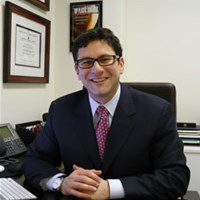BRCA1, BRCA2, Prophylactic Mastectomy and Breast Reconstruction
The BRCA genes function to keep breast cells growing normally and to prevent cancer-cell growth. Scientists have identified mutations of the BRCA1 and BRCA2 gene that can make someone susceptible to developing breast and/or ovarian cancer at some point in their life. When these genes contain the mutations, they do not function normally, and cancer risk increases. Mutations in these genes can be passed from either parent to their children.
*The lifetime risk of developing breast cancer is as high as 84% for women who have inherited a BRCA1 or BRCA2 mutation.
*The lifetime risk of developing ovarian cancer is as high as 60% for women who carry a BRCA1 or BRCA2 genetic mutation.
A blood test, called BRCAnalysis, can determine if someone carries a BRCA1 or BRCA2 gene mutation and empower him or her to make informed choices about risk reduction surgery such as bilateral prophylactic mastectomy (BPM).
Women who have a strong family history of breast cancer but who test "negative" for BRCA1 or BRCA2 gene mutations should keep in mind that a significant proportion of all hereditary breast cancer may be caused by mutations in genes other than BRCA1 and BRCA2. In other words, if you are "BRCA negative" but have strong family history of breast cancer, you may have inherited a different gene (for which a test to identify it does not exist) that puts you at higher than average risk for developing breast cancer.
Significant progress has been made in the field of breast reconstruction surgery over the past several years. Advancements in the field mean that women who undergo mastectomy can usually undergo immediate breast reconstruction procedures that can restore natural appearing reconstructed breasts. The most sophisticated of these techniques can reconstruct breasts that feel natural, and in some cases, these techniques can be used to restore sensation to a reconstructed breast.
*The lifetime risk of developing breast cancer is as high as 84% for women who have inherited a BRCA1 or BRCA2 mutation.
*The lifetime risk of developing ovarian cancer is as high as 60% for women who carry a BRCA1 or BRCA2 genetic mutation.
A blood test, called BRCAnalysis, can determine if someone carries a BRCA1 or BRCA2 gene mutation and empower him or her to make informed choices about risk reduction surgery such as bilateral prophylactic mastectomy (BPM).
Women who have a strong family history of breast cancer but who test "negative" for BRCA1 or BRCA2 gene mutations should keep in mind that a significant proportion of all hereditary breast cancer may be caused by mutations in genes other than BRCA1 and BRCA2. In other words, if you are "BRCA negative" but have strong family history of breast cancer, you may have inherited a different gene (for which a test to identify it does not exist) that puts you at higher than average risk for developing breast cancer.
Significant progress has been made in the field of breast reconstruction surgery over the past several years. Advancements in the field mean that women who undergo mastectomy can usually undergo immediate breast reconstruction procedures that can restore natural appearing reconstructed breasts. The most sophisticated of these techniques can reconstruct breasts that feel natural, and in some cases, these techniques can be used to restore sensation to a reconstructed breast.
1/8/2011 7:38:25 PM

Written by David T Greenspun, MD, MSc
Dr. David T. Greenspun is a Board Certified Plastic Surgeon with offices in New York City and Greenwich, Connecticut. He specializes in the most advanced methods of natural-tissue breast reconstruction, specifically, perforator flaps including the DIEP flap, SGAP flap, and LAP flap. For women who choose to have natural-...
View Full Profile
Comments
Be the first to leave a comment.
Strengthen the Mind-Body-Spirit Connection: 5 Ways Athletes Use Mental Imagery for Bigger, Bolder Victories
Ruth Smith

6 Ways to Ease into Whole Food Nutrition
Kelly Dwyer

Pain is More Than a Body Issue: Five Ways to Reduce Pain with Your Mind
Ruth Smith

Nurturing Family in Times of Change: 5 Strategies for Coming Closer Together During Hard Times
Carol McClelland Fields

The Everyday Mystic: 3 Ways to Quiet Your Mind
Ken Kaisch

Healthy Aging, Healthy Lifestyle and You
Sue Brown

Deepen Your Connection With Your Child: 5 Ways Curiosity Becomes Your Superpower
Maria Lentzou

Mental Imagery: 3 Ways Great Parents Actualize the Power of Visualization
Gloria DeGaetano, M.ED.
